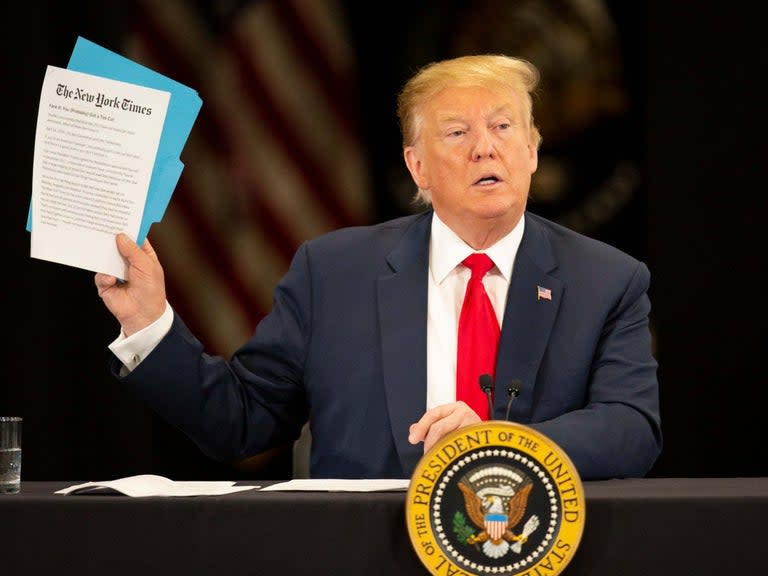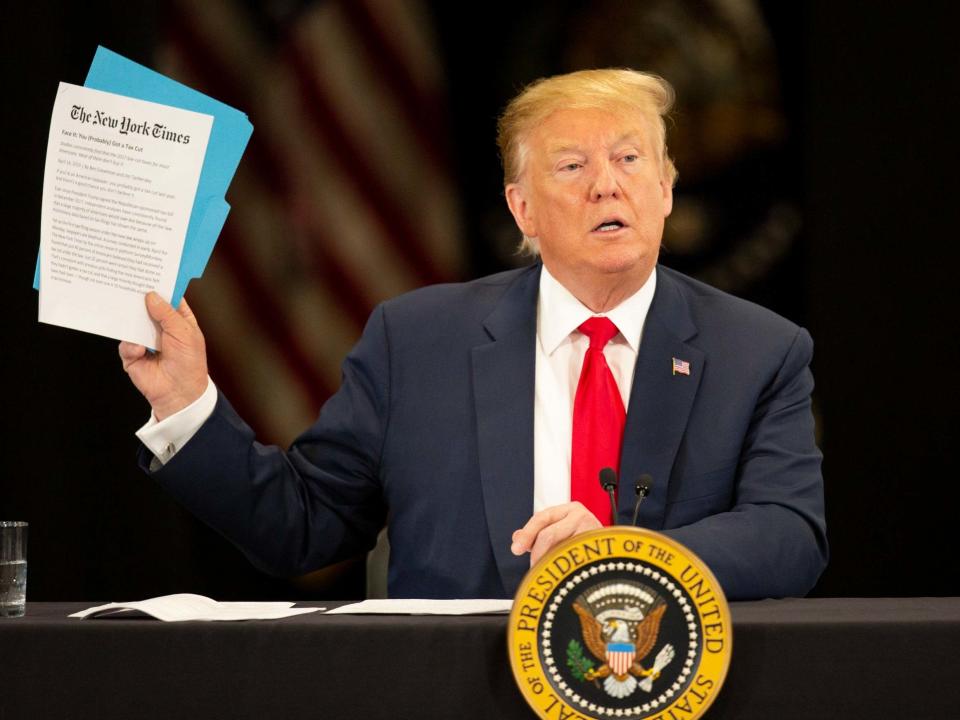'Racially charged, xenophobic, lowest-rung slur': All the words apart from racist used by newspapers and websites to describe Trump's racist tweets
Media outlets have come under fire for deploying a series of euphemisms instead of describing Donald Trump’s tweets at Congresswomen of colour as racist.
Most leading newspapers and news websites chose to report the president’s angry tirade targeting four leading Latino, black, and Arab Democratic lawmakers as “racially-charged” or similar.
Some, following an online backlash, have since rephrased headlines and introductions to toughen their language.
Mr Trump tweeted “progressive Democrat congresswomen, who originally came from countries whose governments are a complete and total catastrophe… why don’t they go back and help fix the totally broken and crime-infested places from which they came”.
The tweets were directed at a group of four leading leftist Democrat representatives who have taken the lead in attacking his presidency in recent months.
Despite Mr Trump’s racist tweets, three of the four were born in the United States and the fourth arrived a refugee when still a child.
Alexandria Ocasio-Cortez was born in New York to Puerto Rican parents, Rashida Tlaib was born in Detroit to Palestinian immigrants, Ilhan Omar came to the US with her Somali refugee family aged in 1992, while Ayanna Pressley’s only possible connection with any other country is the fact she is black.
While almost all the Democrats running for president were quick to call out the tweetstorm as racist, most news outlets preferred to equivocate.
The New York Times’s story initially led with a reference to friction between the “Squad”, as the four progressive congresswomen have become known, and Nancy Pelosi, the more moderate Speaker of the House of Representatives.
It reported Mr Trump was “stoking racial divisions” and used a “lowest-rung slur…widely regarded as beyond the pale”. It later updated the intro to its story to make it clear the president’s insults were “widely established as a racist trope”.
Other respected outlets, including the Wall Street Journal, the BBC website, CNN, and NPR described the online diatribe as “racially-charged”.
This was picked upon by many online as vague and tepid, with some noting earlier this year America’s journalistic bible, the AP Style Book, made it clear reporters should not use the “racially-charged” euphemism for actions and statements which are unambiguously racist.
Others, such as Newsweek, online news startup Axios, and Sky News chose instead to refer to Mr Trump’s attack as his “go back tweets”, while the Daily Mail simply referred to the posts as his “Sunday morning tweets”.
Many outlets chose to frame the story through the criticism of others, including Mr Trump’s Democratic opponents, who accused the president of racism.
Some, including the Washington Post and The Times, preferred to simply describe the content of the tweets in their headlines, with The Times going on to describe the “anti-immigration rhetoric” the president used.
A few, mostly left-leaning, outlets were happy to call the tweeted tirade “racist”, including The Guardian, BuzzFeed and HuffPost.
After CNN’s own chief media correspondent Brian Stelter called the tweets “straight up racist”, their own website updated its own story’s language from “racially-charged” to “racist”.

 Yahoo News
Yahoo News 

